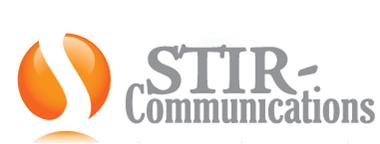"Every block of stone has a statue inside it and it is the task of the sculptor to discover it." - Michelangelo
By all accounts, my father is a supreme erudite, the highly successful founder of an established law firm with an impressive history of guiding his clients to monumental success. He would often proclaim, “what you don’t know will kill you.” I heard it so many times I hummed it like a mantra. It sounds impressive and when shouted across a desk prior to walking into a legal battle it’s hard to dismiss. Most scholars and leaders of business would subscribe to my father’s way of linear thinking. Teacher’s lesson plans have little room for interpretation, deviation or original thought. Many businesses follow suit. I love my father, but, he could not be more wrong.
So much for my portion of the will.
If you are lucky, when you’re young you learn the importance of failure. I didn’t until later in life. Not because I was so successful, but rather so fearful of what I didn’t know. The lesson I often learned was “don’t try.” I mean, who wants to be killed?
No matter what you know, what you don't know always remains more important in your business journey and life progress. That’s right what you don’t know will not only NOT kill you, it shouldn’t be debilitating, but actually liberating. If you remain in a constant search for what you don't know, the chances of your growing and learning are much greater. It’s at odds with what I was taught by my father and throughout the educational system, which provides us with a false sense of confidence that the more we know the more successful we will be, the measurement tool of grades equals life preparedness.
What we don't know allows us to tap the opportunity to apply trial and error, to learn and grow. The greatest inventions in history came from the R&D portions of companies or people’s brain. Trial and error with an emphasis on error are what moves progress forward. Quick trail and success is either luck or a concept not pressing the innovative boundaries. When you have the most on the line and the least going for you, you learn the most about yourself. That is particularly true with personal change or attempting something anew.
I grew up with learning disabilities including dyslexia. That meant the wiring in my brain gave me unusual aptitudes and abilities that tended to make me go about life differently than other people (that difference scares teachers and parents). I struggled with tasks that many people find easy. I couldn’t read or spell until high school. Grammar school was filled with years of torment and negative exertion.
I had to struggle in life, making many mistakes in a quest for success, but I always kept going. I have since won awards for my writing and lead companies with their complex business thought. I do not say this to impress you, but to impress upon you that I could never have accomplished anything until I realized that what I didn’t know was equally part of my arsenal.
Learning to embrace the unknown is another way of learning to love thinking differently. If you think differently, you are going to fail now and then, but you are also going to achieve wonderful successes. If you are in constant fear of what you don’t know and the consequences of pending doom, no one would get off the starting line.
"I have not failed," Thomas Edison said at one point in his experiments to find long-burning filament. "I've just found ten thousand ways that don't work."
Yes, he was dyslexic, too.
All my best,
Greg
Greg Salsburg
The Big STIR
STIR-Communications
Miami | London | New York
c: (561) 386-8064
o: (305) 407-1723
e: Greg@STIR-Communications.com
Subscribe to:
Post Comments (Atom)





No comments:
Post a Comment